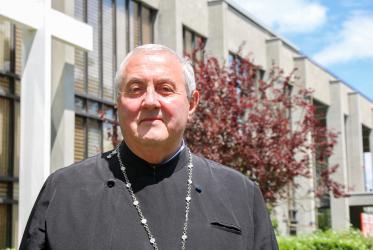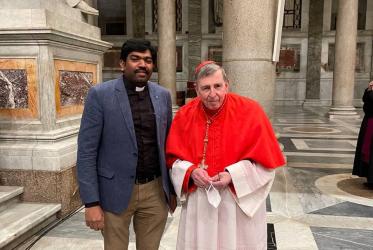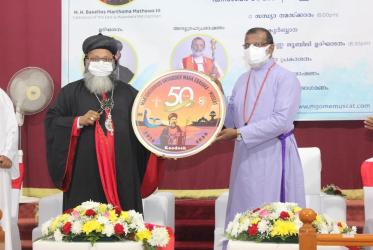Displaying 121 - 140 of 572
14 March 2022
WCC shares greetings with Jamaica Baptist Union
24 February 2022
Tutu’s legacy: A Zoom panel celebrating “the Arch”
03 February 2022
WCC video interview describes human rights crisis in West Papua
13 January 2022







